- 74 Mount Street, Heidelberg, VIC, 3084
- Monday to Friday: 9am to 5pm
Hearing Aid Maintenance
-
DWM Audiology > Our Services > Hearing Aid Services > Hearing Aid Maintenance
Careful handling and regular, thorough maintenance is essential to minimise the need for repairs and to preserve the life of your hearing aids. Your hearing aids are sensitive electronic devices, often with circuitry inside the ear canal, so are highly vulnerable to damage from moisture and wax.
Maintenance of Hearing Aids
If your hearing aid is not properly maintained, wax and moisture damage can lead to:
- a gradual or sudden loss of volume
- a reduction in the clarity of high-frequency sounds which can then appear muffled or distorted
- whistle or feedback
- the aid cutting out altogether
To avoid any of these changes in performance, it is important to ensure you check and clean your hearing aids daily at home.
At DWM Audiology, we have a vacuum suction device, which draws moisture and debris from a hearing aid. This can restore a malfunctioning hearing aid. We recommend that our patients come in straight away to our reception desk if their hearing aid is not performing well. We encourage all of our patients to make use of this service every 3-4 months, to ensure optimal performance. No appointment is needed to do this, and we provide this service to our patients free of charge.
Wax guards, wax filters, tubing and ear moulds for behind-the-ear hearing aids need to be replaced regularly. This can be checked at our reception desk. There are minor charges for these parts after the warranty period has expired.
We will arrange repairs as needed.
Tips for Cleaning and Maintaining Your Hearing Aids
- Ideally, you should handle your hearing aids while seated at a table with good lighting. Alternatively, you can handle them with a towel or pillow on your lap.
- Wipe your hearing aids and ear moulds/domes with a disposable tissue to remove wax and skin whenever you remove them from your ears.
- If you have circuitry fitted in your ear canal, you should examine your wax filter closely. If it is blocked, it needs to be replaced.
- If you have an air vent in your ear mould/hearing aid, remove any wax or debris from the air vent using the tool provided.
- If you are wearing a fully behind-the-ear hearing aid: clean slim tubing as needed with your whisker. You should examine your ear mould/dome closely, using your cleaning tool to remove any wax from the hole where the amplified sound is fed into your ear.
- Use your cleaning tools carefully – do not damage your hearing aids by cleaning too vigorously.
- Do not get your hearing aids wet. They need to be removed before having a shower, a bath, or a swim. They should also be removed when at the hairdresser and before using hair products.
- If you have been provided with a dehumidifier, use it every night to absorb any accumulated moisture in your hearing aids.
- Be careful not to drop your hearing aids onto a hard surface.
- Keep your hearing aids in a cool, dry place away from children and dogs! The small batteries are dangerous if swallowed. Hearing aids can be attractive to dogs, and it is not uncommon for a hearing aid to be brought in for repair or replacement as a result of being chewed by a dog. This is not considered normal wear and tear, and repairs/replacement may not be covered by the warranty.
Hearing Aid Batteries
Unless you have purchased rechargeable hearing aids, you will be provided with batteries when your hearing aids are fitted. When these batteries run out, you will need to purchase your own. Make sure you buy fresh batteries of the correct size for your hearing aids. Different sized batteries are colour coded: yellow, brown, orange and blue.
When you remove the batteries, clean the battery contacts in your hearing aids. You can do this with a cotton bud or a clean, dry cloth.
Stale or poor quality batteries will have a reduced life and may result in poor performance from your hearing aids. We stock high quality batteries and with our high turnover, they are always fresh.
Batteries can cause damage to your devices if left in for a long time. If you plan on not using your hearing aids for consecutive days, it is recommended that you leave the batteries out temporarily.
Care and Maintenance of Hearing Aids: Our In-House Services
We provide guidance to help you care for your hearing aids. Maintenance tools are provided as part of your hearing aid fitting package.
We provide all our patients with:
- free in-house checking and deep cleaning of your hearing aids, using pressurised drying and vacuum suction equipment.
- minor in-house repairs
- maintenance accessories at cost price
- bulk discount battery purchase
These services are available without an appointment between 9.00 am and 5.00 pm.
Hearing Aid Checklist
Most common hearing aid problems:
- Aid dead
- Aid working but weak
- Hearing aid fading over the day
- Can hear static but no amplification
- Feedback/whistling from the hearing aid
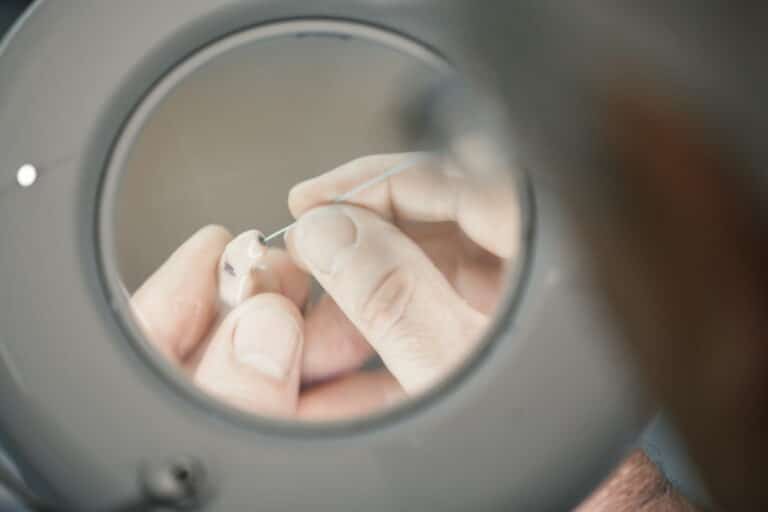
Troubleshooting Checklist
Aid dead
- Is there a battery in the hearing aid?
- Is the battery fresh?
- Is the battery inserted correctly?
- For fully behind the ear aids, check if the tubing is blocked
- Is there wax blocking the filter or the output hole in the mould/dome?
- Is the microphone blocked with wax/dirt?
Aid working, but weak
Is there any wax blocking the filter or output hole in the mould/dome?
Check if your microphone is blocked.
For fully behind-the-ear aids, check if there is any moisture or dirt in the tubing.
Hearing aid fading over the day
The most common cause is a build-up of moisture in the hearing aid. Bring the hearing aid in to our clinic. Our vacuum suction cleaning device will draw moisture and debris from your device for a thorough cleaning. This can often restore a malfunctioning hearing aid.
If this is a recurrent problem, you may need to use a dehumidifier more often
Can hear static, but no amplification
- Probable receiver/microphone damage – this needs repair by the manufacturer.
Getting feedback (whistling)
- Is the hearing aid/mould/dome correctly inserted or too loose?
- Is there any wax blocking the filter or the output hole in the mould/dome?
- Do you have a wax build-up in your ears?
- Is the ear mould/hearing aid shell old or cracked or split?
Hearing Aid Repairs Melbourne
Hearing aid repairs are arranged through the manufacturer. Loan BTE/RIC hearing aids can be provided while your hearing aid is being repaired.
Book an Appointment
Our Services
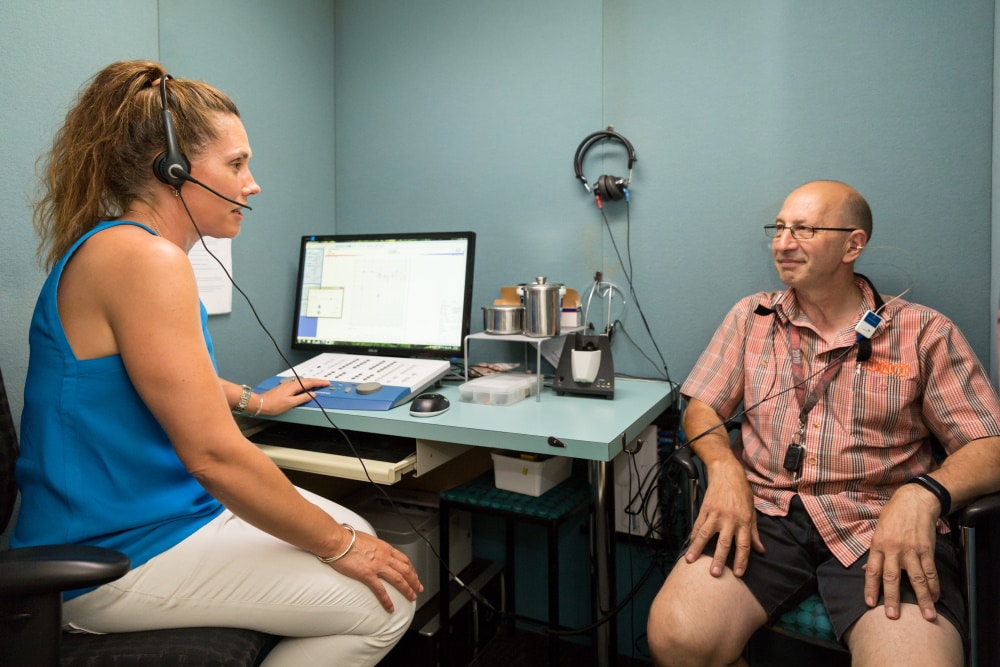
Hearing Tests for Adults
A reduced capacity to communicate has a significant impact on relationships, career opportunities, social connection, independent living and quality of life.
Read More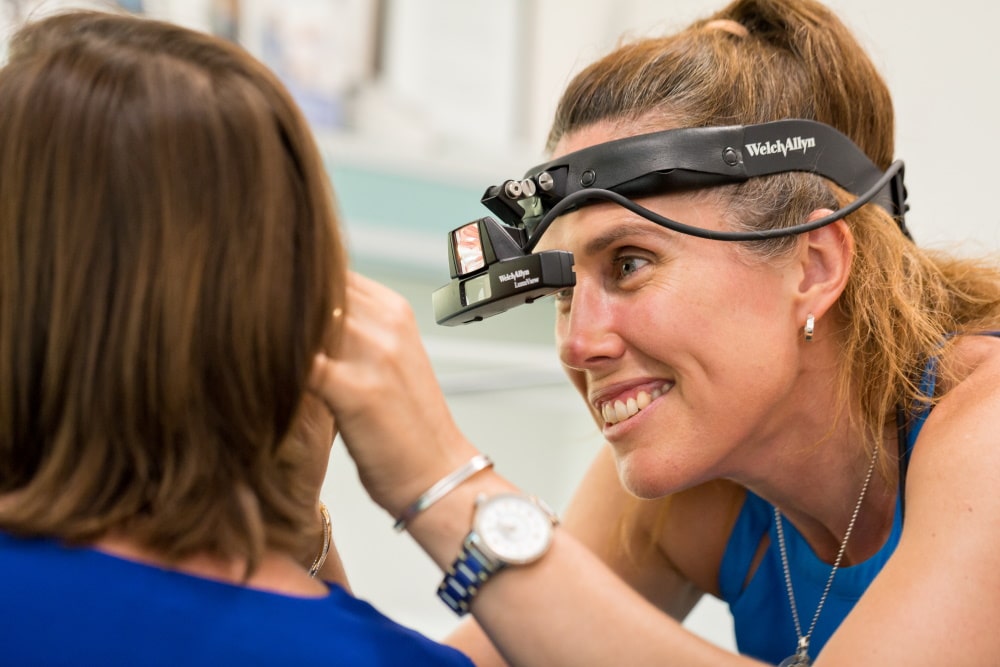
Do I Need A Hearing Aid?
We carry out a range of hearing tests that help determine whether you need a hearing aid.
Read More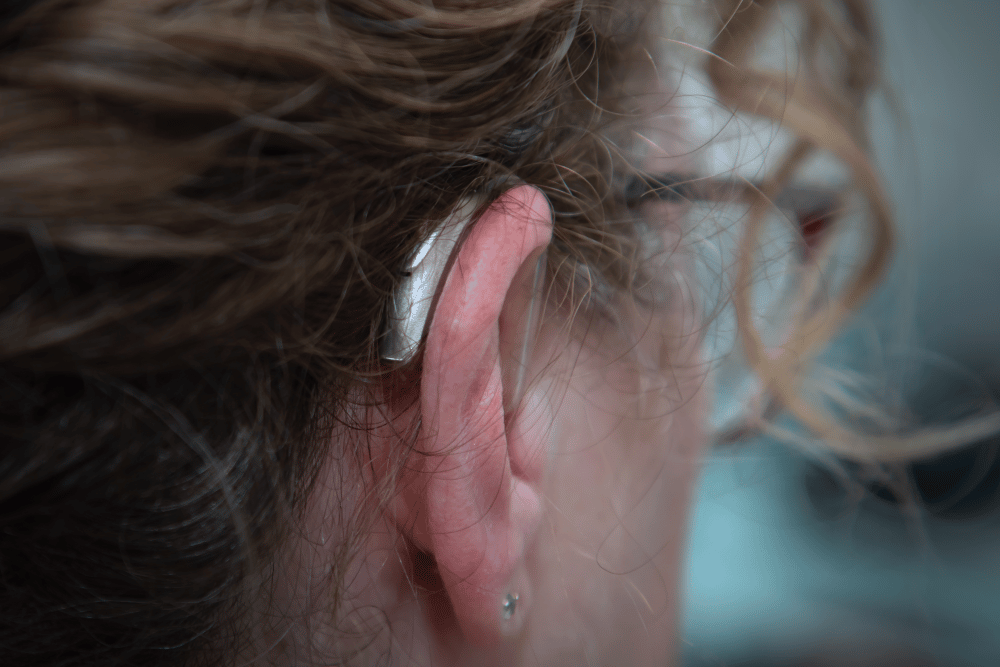
Choosing Hearing Aids
Hearing aids are available in three styles; BTE, RIC or are fully contained in the ear.
Read More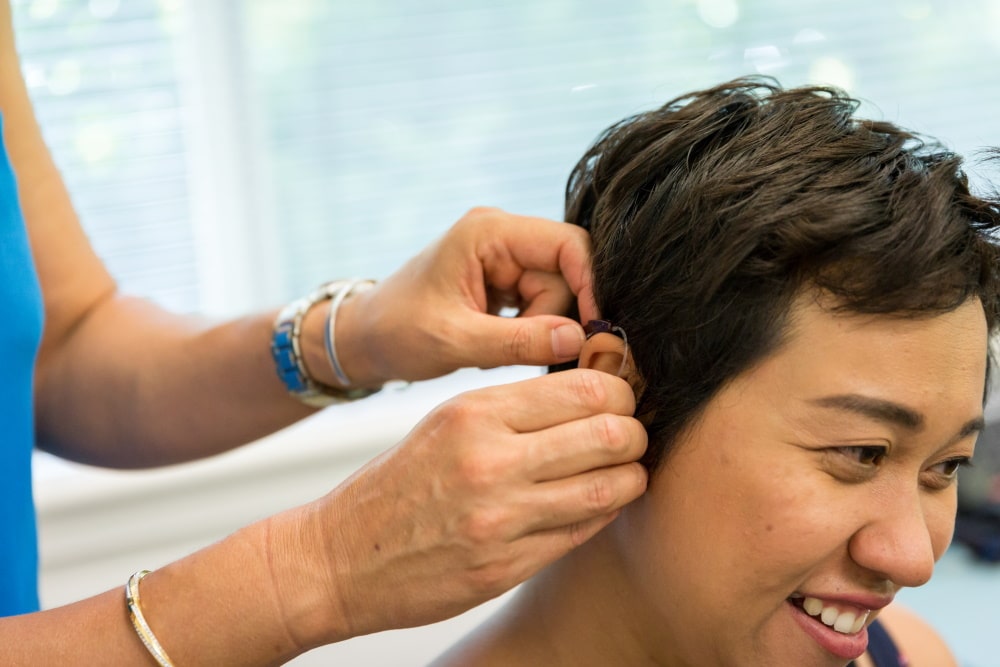
Getting Used To Hearing Aids
With new hearing aids your concept of “normal” hearing will need to be relearnt.
Read More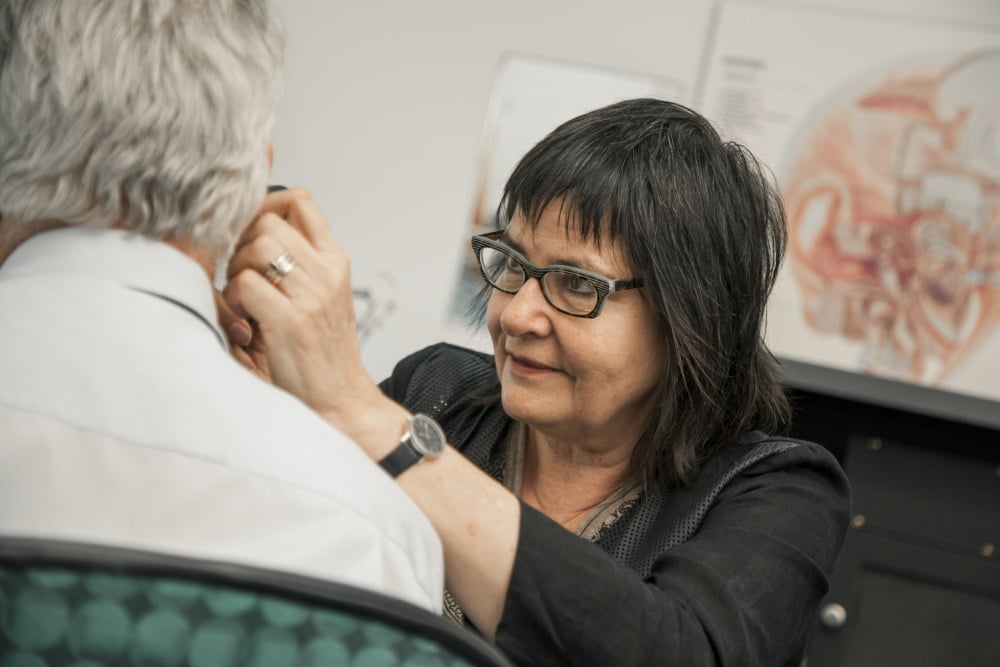
Fine-Tuning Hearing Aids
We have extensive training, experience and expertise in fine-tuning contemporary hearing aids to individual communication needs.
Read More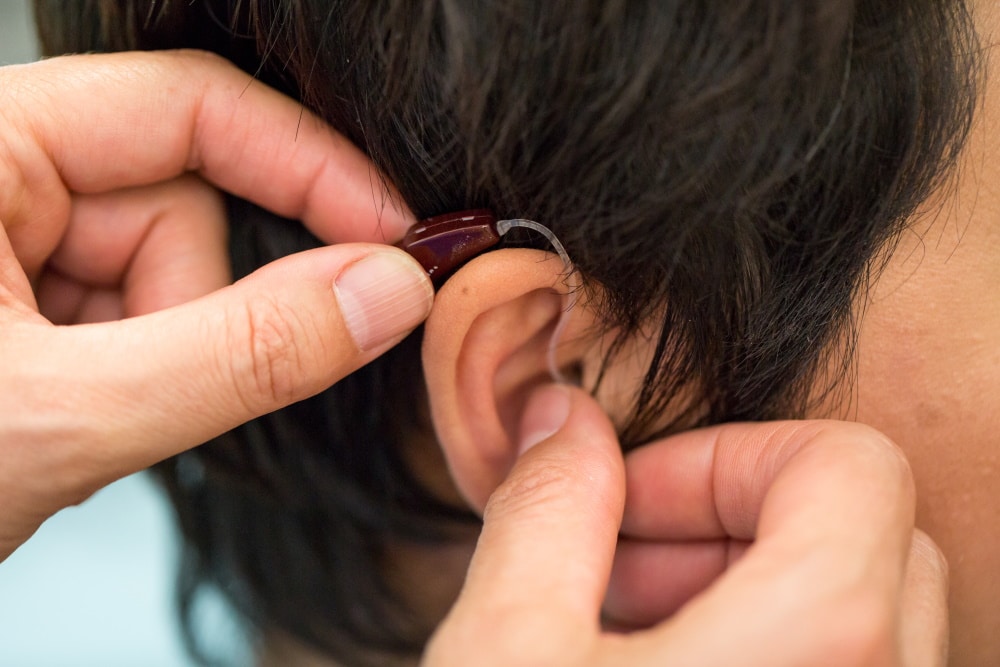
Hearing Aid Fittings
Your fitting package will include an instruction booklet and the accessories needed for maintenance and dehumidification
Read More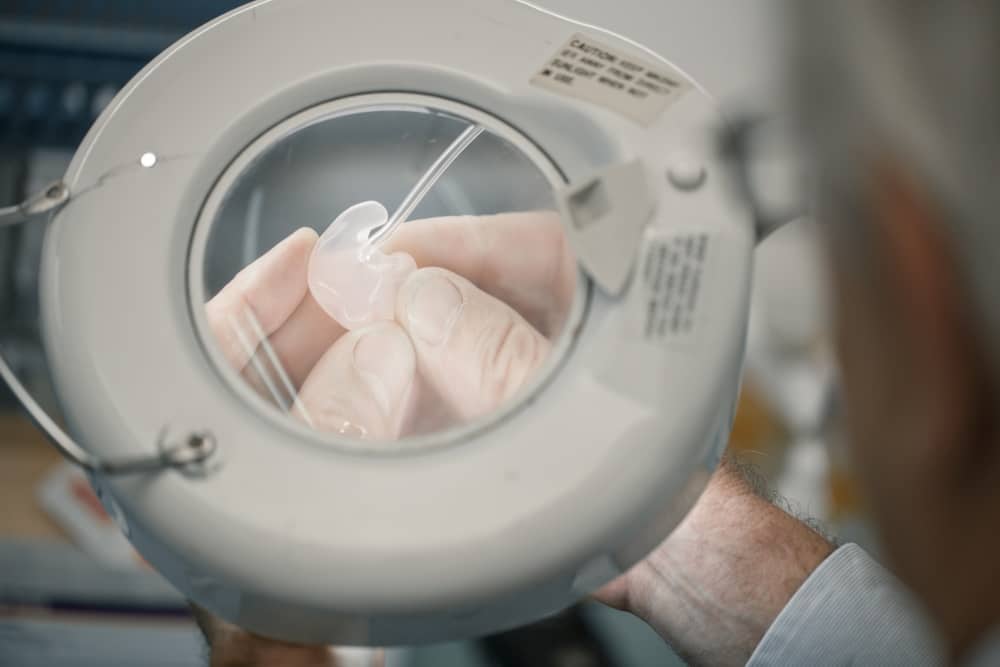
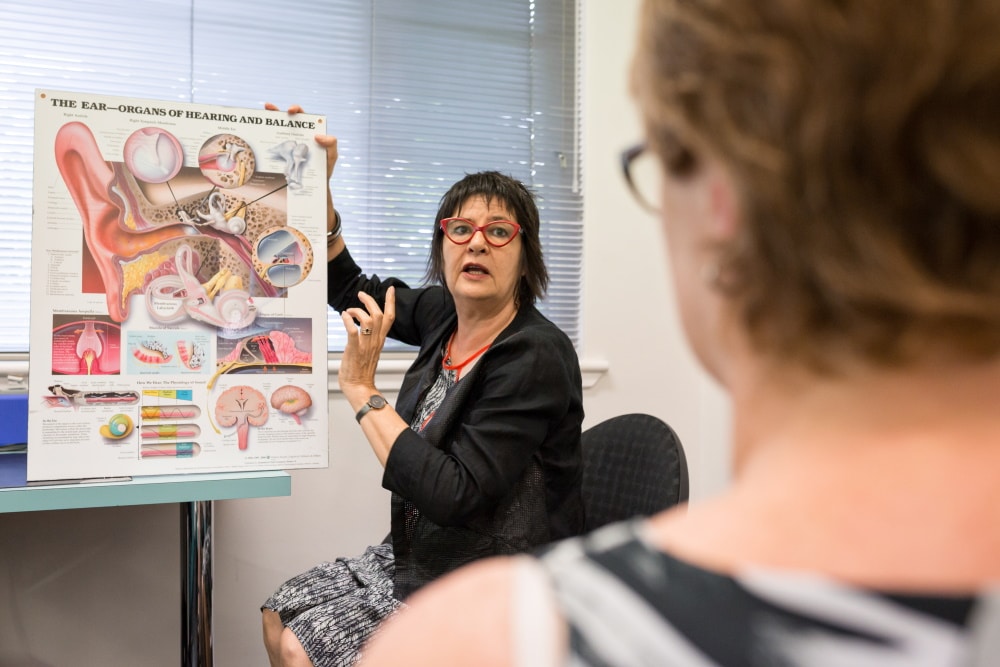
Hyperacusis & Misophonia
Both conditions have the potential to escalate, so that an increasing range of sounds become intolerable.
Read More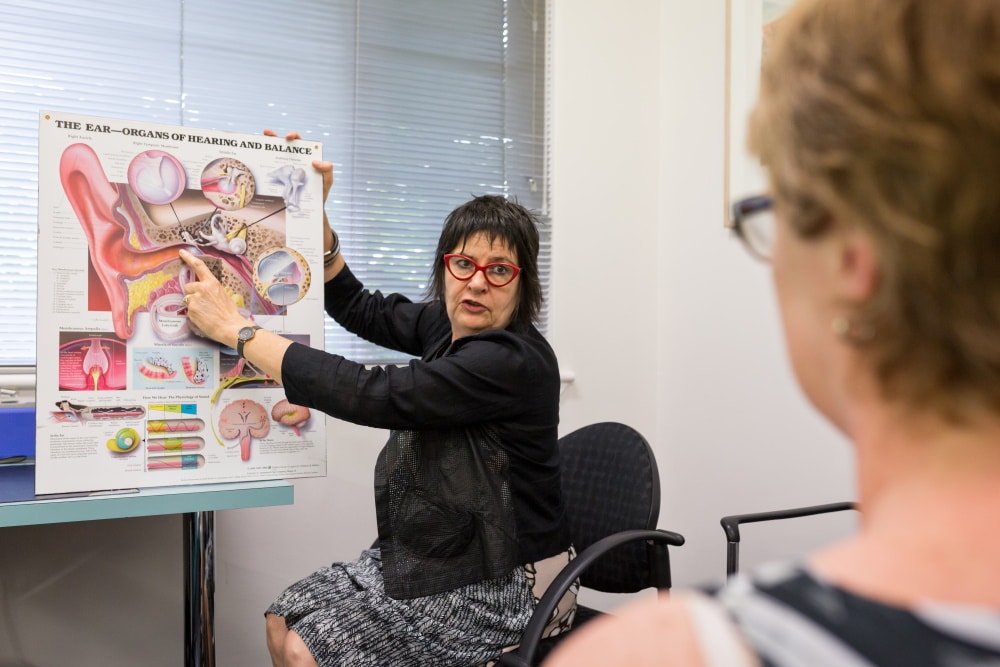

Misophonia
Misophonia is a strongly aversive response or abnormal sensitivity to certain specific sounds
Read More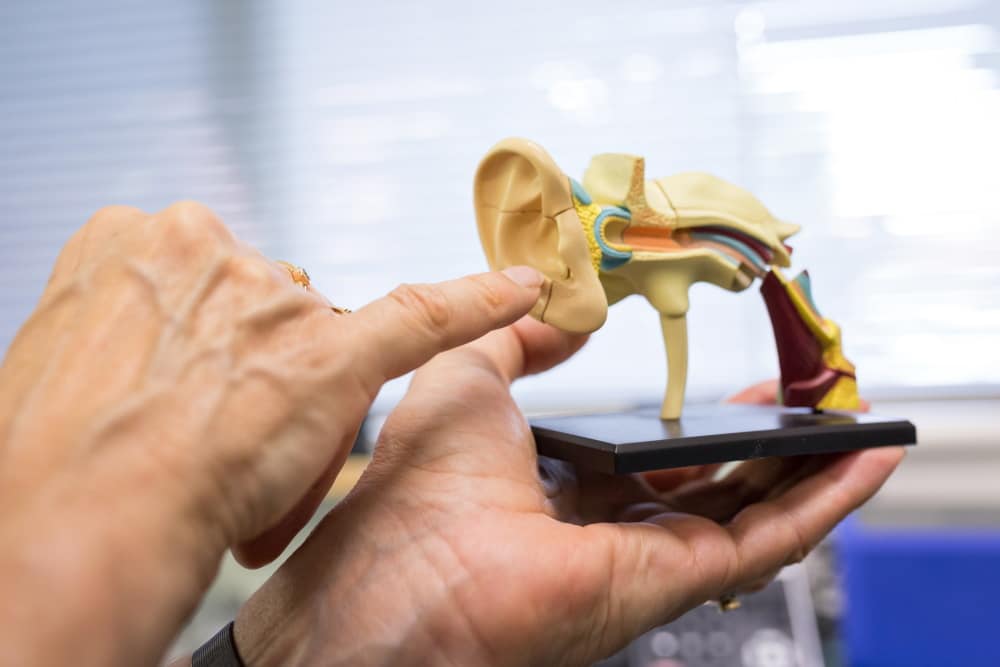
Tinnitus
Tinnitus is the term used to describe hearing any sounds which are not present externally.
Read More
Acoustic Shock
Acoustic shock is an involuntary fright/psychological trauma reaction to sudden, loud noises.
Read More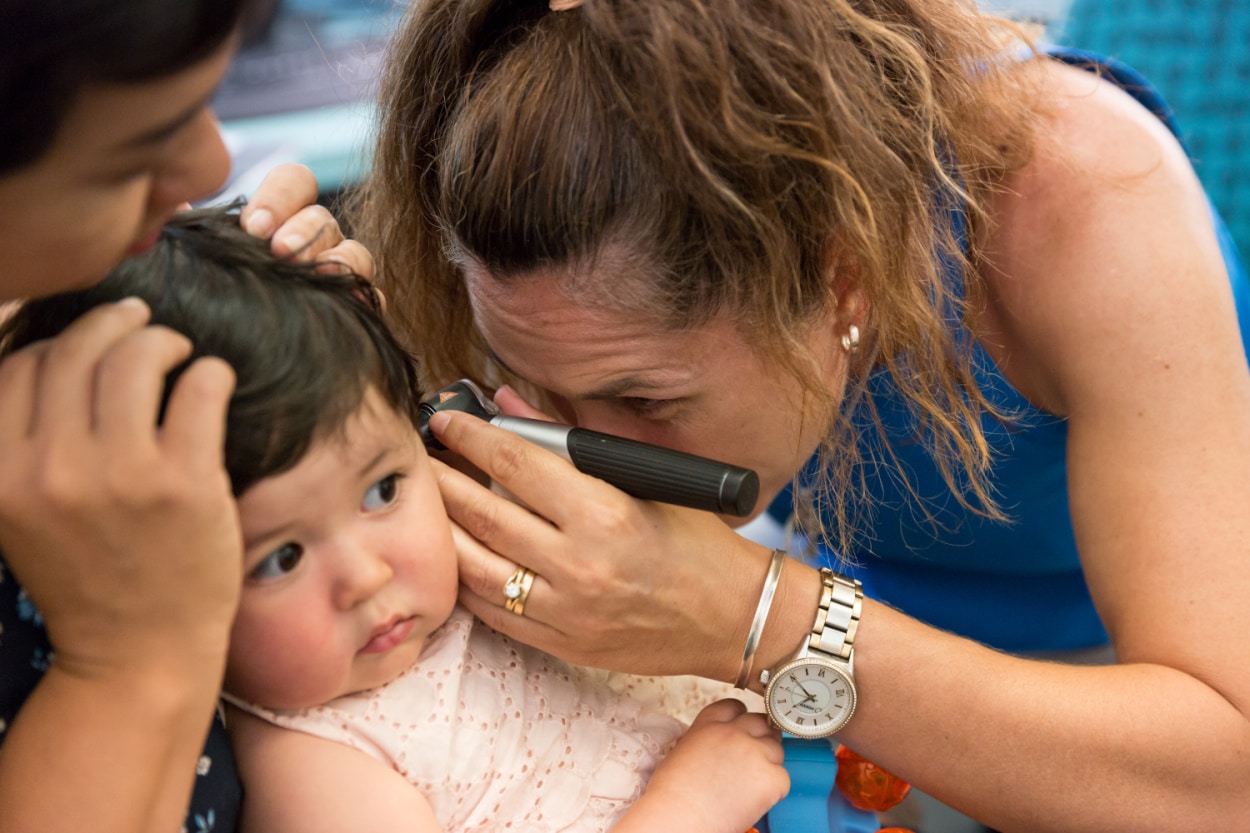
Hearing Tests for Kids
Hearing difficulties in school age children are known to have a significant impact on their social, behavioural and academic growth.
Read More
